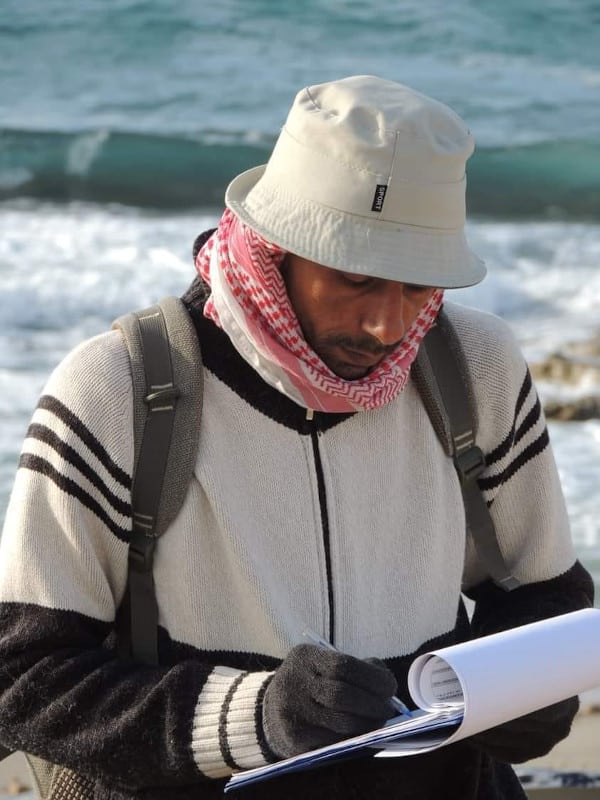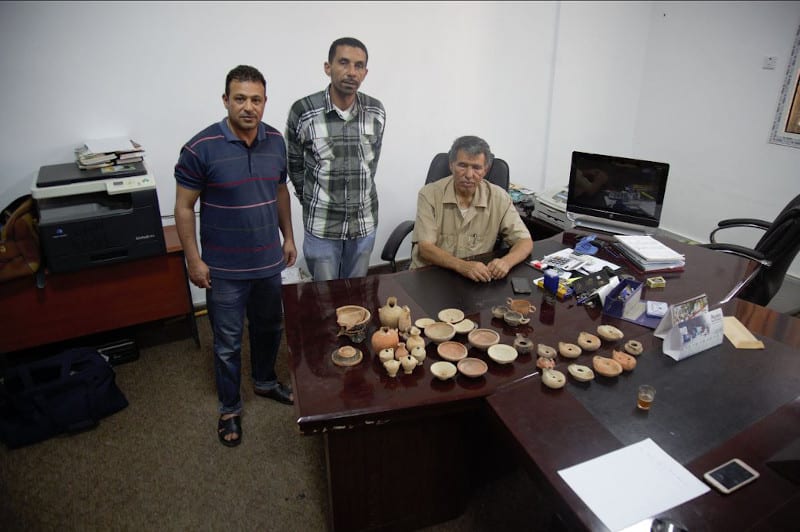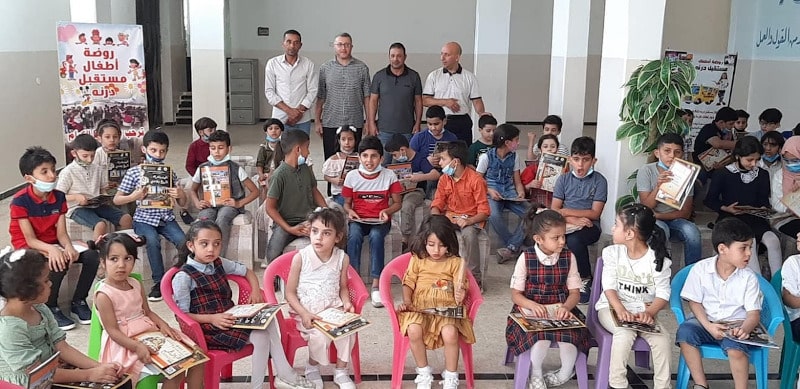
IN MEMORIAM: YOUNIS ALI AL KAWASH (1977-2023)
With deep regret, we share the news that Younis al Kawash, a long-time contributor to ASOR’s projects in Libya, was killed along with his family during the recent flooding of storm Daniel. Born and raised in the city of Derna, situated on the eastern coast between Benghazi and Tobruk, Younis studied archaeology at the local university and became the director of the local office of the Libyan Department of Antiquities, where he served from 2005-2015.
During this period, he participated in site documentation training workshops run by the American Archaeological Mission to Libya at the UNESCO World Heritage site of Cyrene and eventually helped lead similar courses in Leptis Magna and the Jebel Nafusa. As ASOR expanded its Cultural Heritage Initiatives to Libya in 2017, Younis and his colleagues in the Derna office assisted in the documentation and reporting on damage to local cultural heritage sites.
According to Salah Sadullah, Museums Director for Eastern Libya, when Derna was seized by ISIS forces in 2014, armed extremist soldiers searched the local Department of Antiquities office. Younis was asked if he had any antiquities, and he deflected the question, saying that there had been some basic ethnographic collections and Islamic tomb stones once stored at the office, but that they had already been sent to the storerooms of Cyrene for safekeeping. In fact, Younis had secretly removed the entire collection of Roman antiquities from the office, which doubled as a local museum, and hidden them in hole he dug in the floor of his brother’s home goods store located on the ground floor of the apartment building shared by the Kawash family. After the city was liberated from ISIS, the entire collection was recovered intact.

“In the eyes of the entire archaeological community in Libya, Younis is considered a hero for his actions during this difficult period,” reflected Dr. Ahmad Emrage, ASOR’s representative in eastern Libya. While his actions are emblematic of a broader community of dedicated civil servants who work to protect Libyan cultural heritage every day, he and his family went above and beyond to protect the rich history of Derna at a time of mortal threat.

In recognition of his exceptional service, Younis was promoted in 2018 to the position of the Director of the Office of Archaeological Protection for the entire eastern region of Libya. In this capacity, he helped with many public outreach activities, and facilitated the safe return of approximately 1,800 objects to the Department of Antiquities from ordinary citizens. Salah Sadullah fondly remembers working alongside Younis during this period: “He was energetic, he loved his work, and he was always what we would call a gentleman. He participated in many training workshops and he was always seeking new tools to make our work easier. He would even spend his own money to get something like a drone, and then Younis would become a go-to guy for drone documentation.”
Younis was also a welcome addition to any field team. Dr. Emrage shared his recollection of fieldwork with Younis: “He was always a pleasure to work with on a survey because he was such a friendly guy. In 2021, he contributed to the survey that ASOR sponsored in the area surrounding the UNESCO World Heritage site of Cyrene with the support of the Ambassadors Fund for Cultural Preservation. He was also very dedicated to his family. While most of the team stayed in a rented house, Younis would drive home to Derna every night and then wake up early the next morning to drive back to our survey area. He would always be the first one on site, and the first one to greet us in the morning.”

According to Dr. Ahmed Hossein, former Chairman of the Department of Antiquities of the Provisional Government of Abdullah al-Thinni. “Younis was one of the most talented and dedicated members of our staff. What can I say? May God have mercy on him and his family.”
On the night of September 10, he was on the rooftop of his apartment building live streaming images from Wadi Derna, where the floods already threatened to wash out a nearby bridge. The rains had subsided and members of the neighborhood on both sides of the wadi had come outside to witness the torrent flowing through the riverbed. Sometime in the following hours, two dams upstream of Derna failed and a monstrous wave washed through the city, killing Younis, his family and thousands of others.
ASOR shares its profound condolences with the remaining members of the Al Kawash family, and all our friends and colleagues in Libya who have suffered from this disaster. We will continue the heritage protection work that Younis held so dear, but we recognize that this work will only be more difficult without him.
